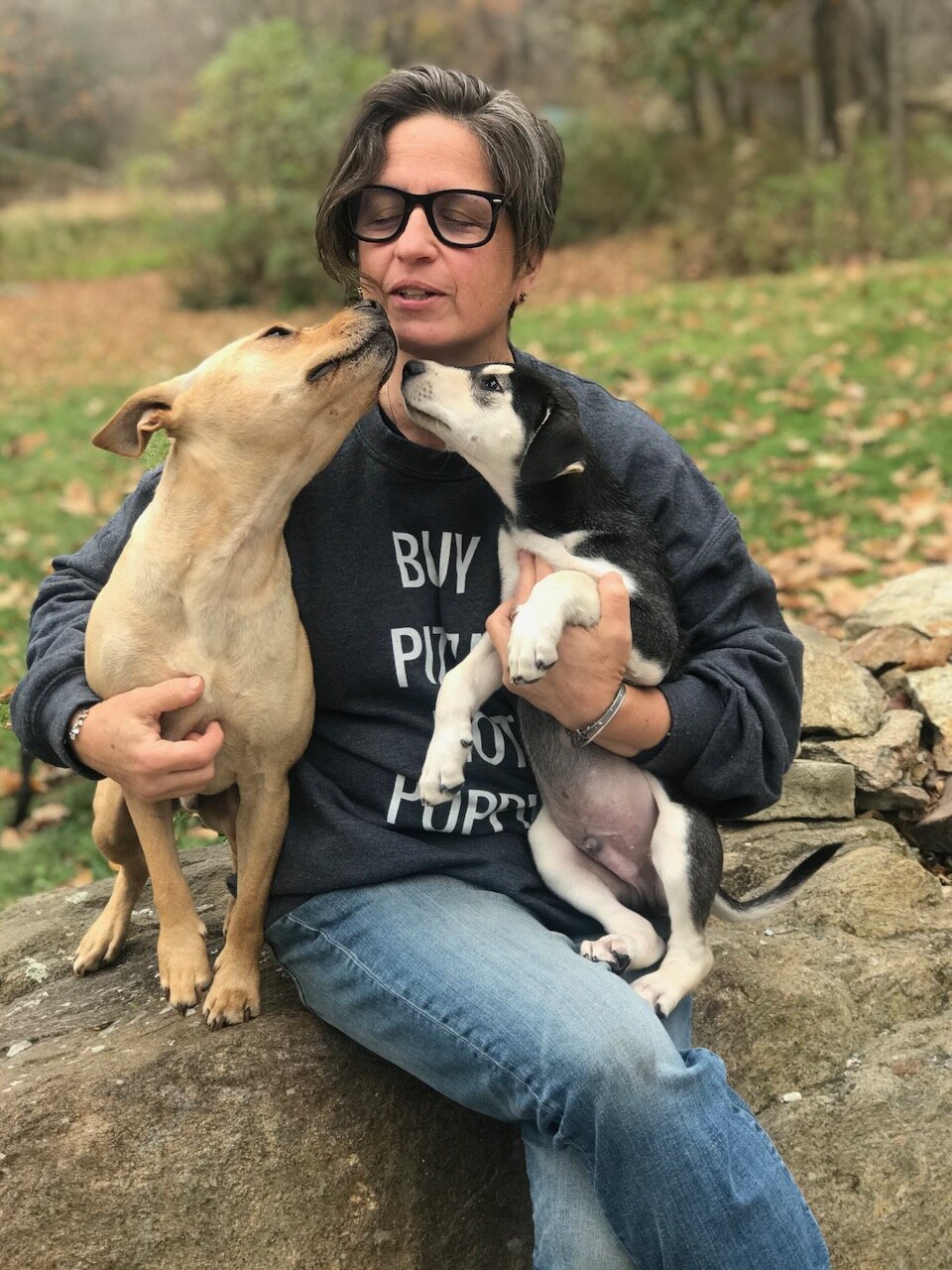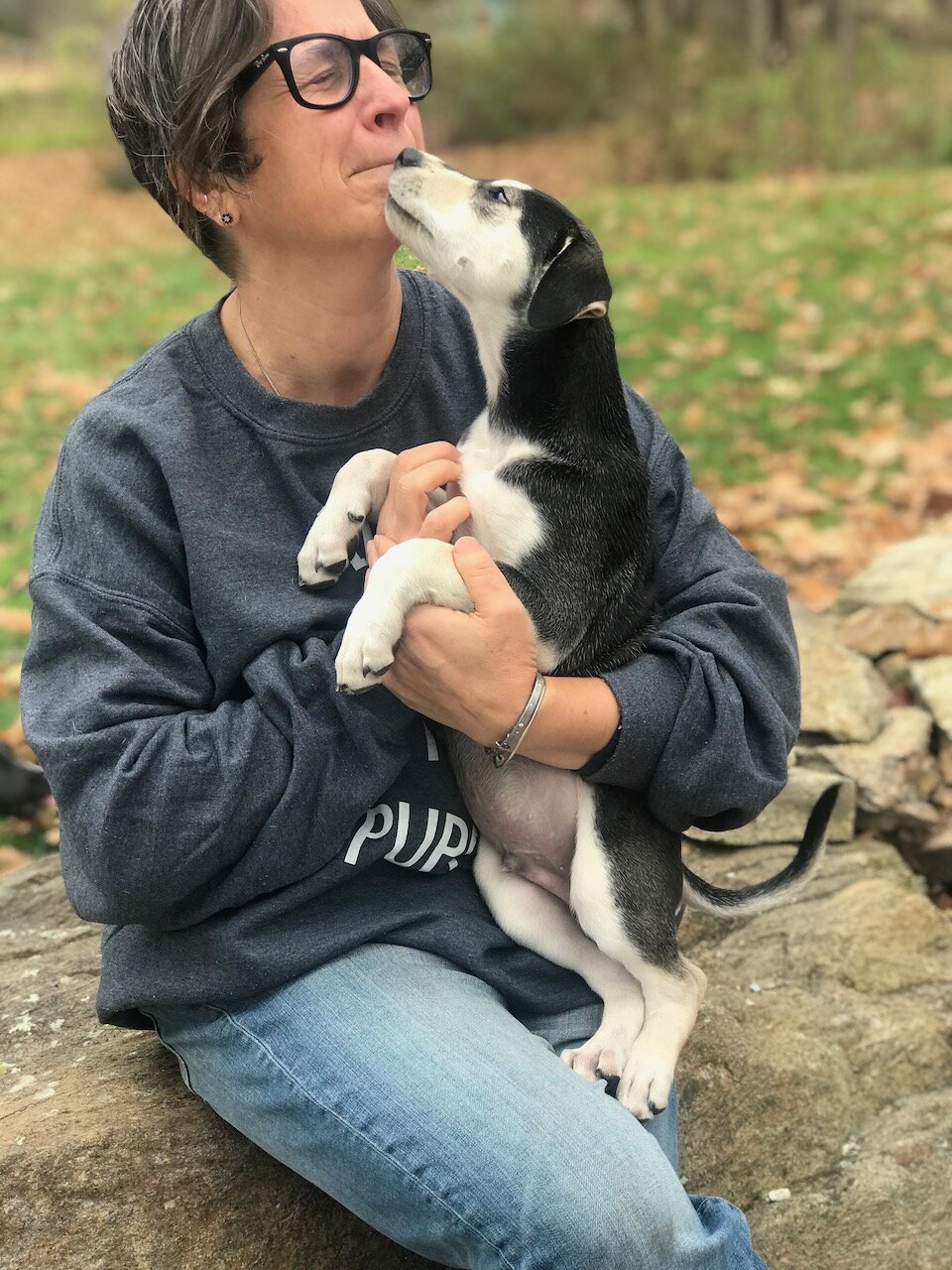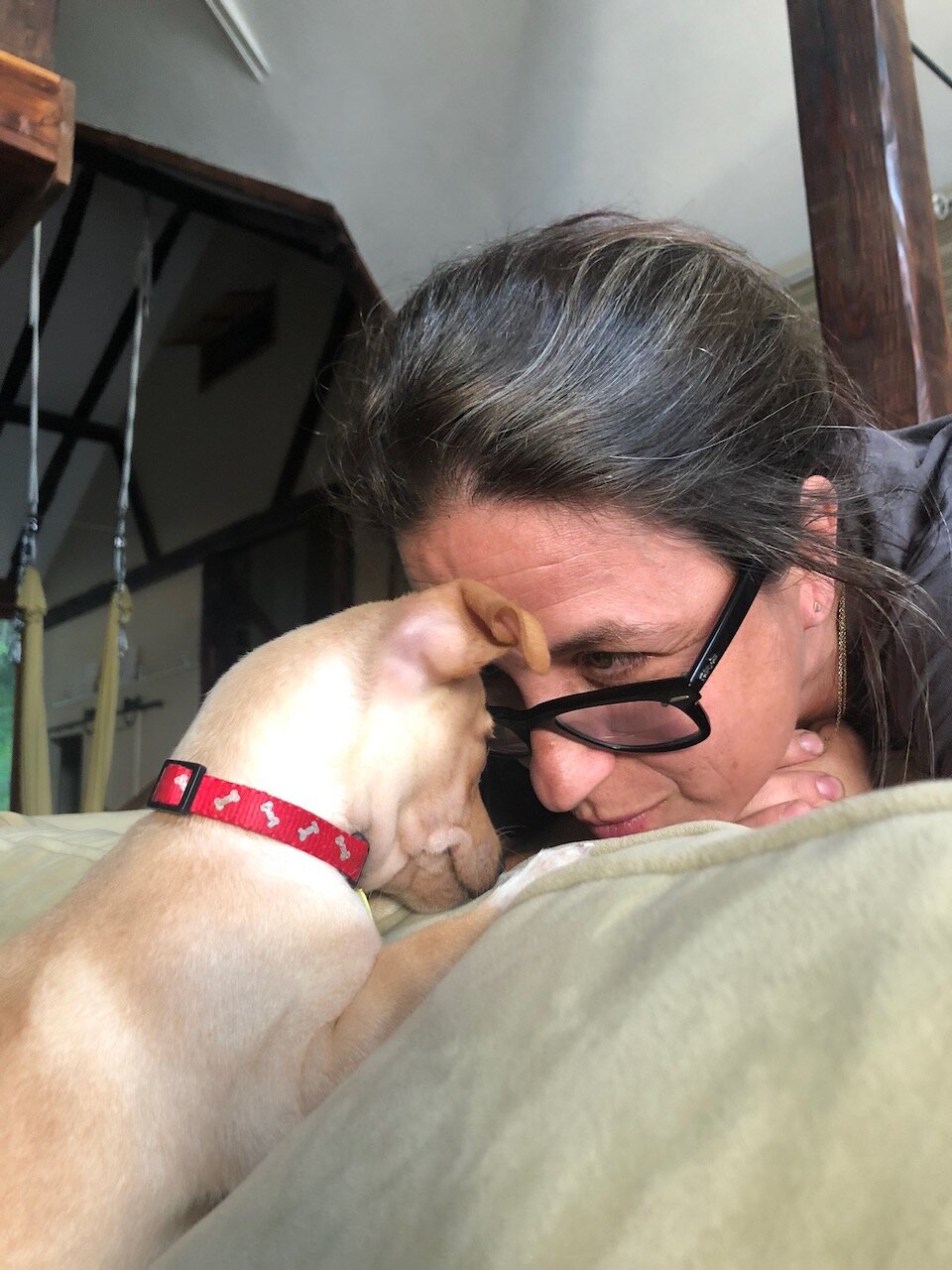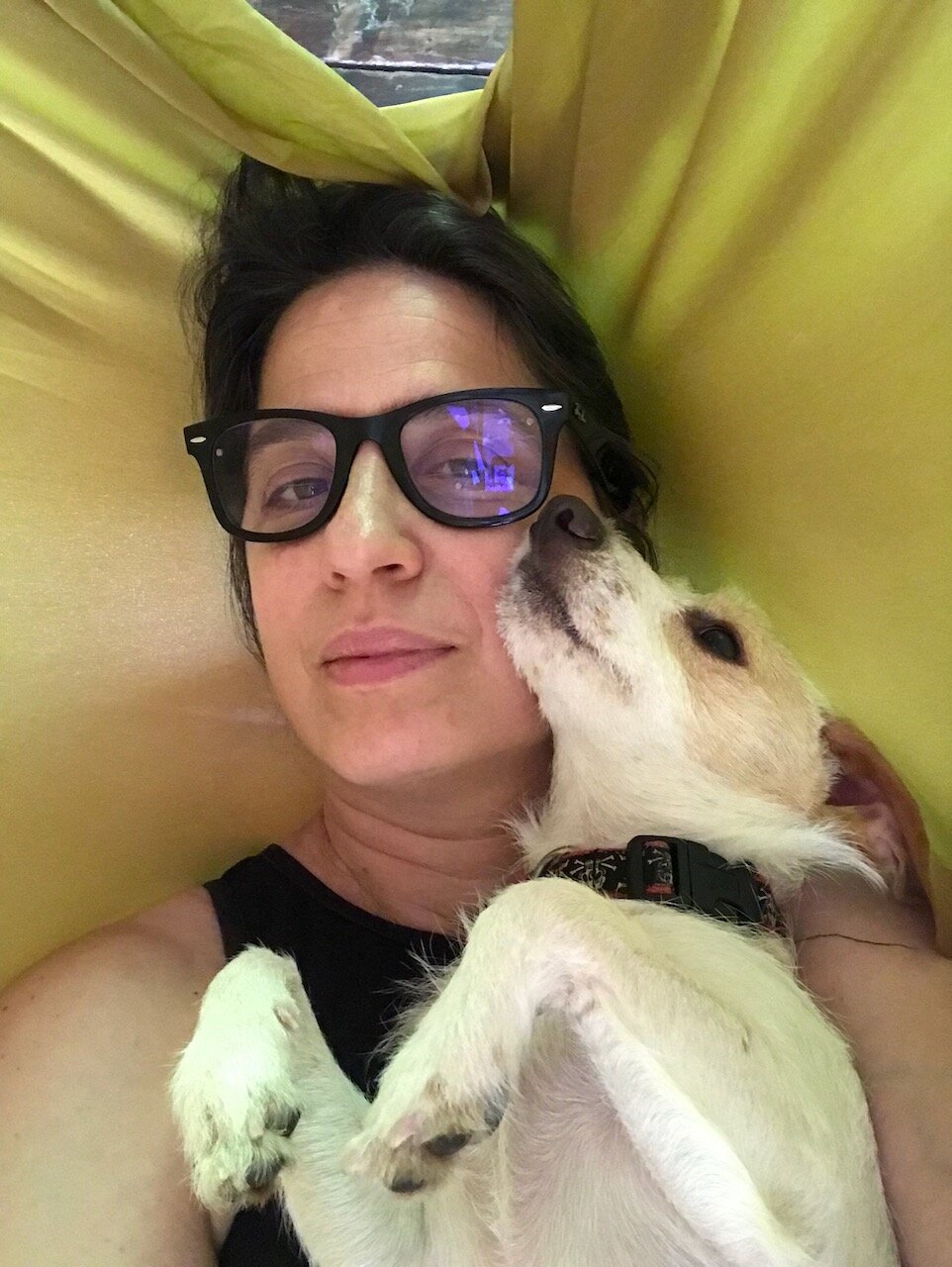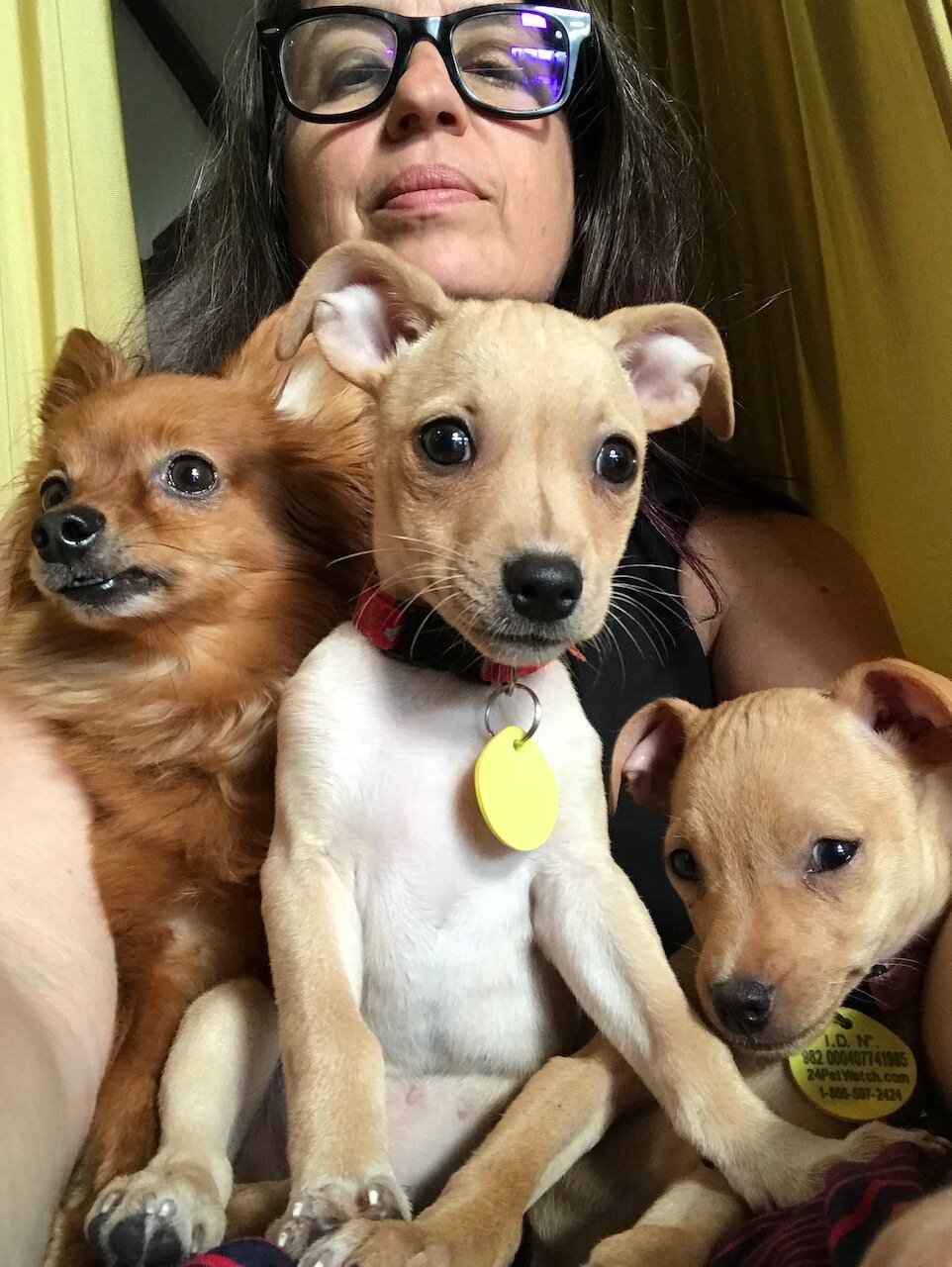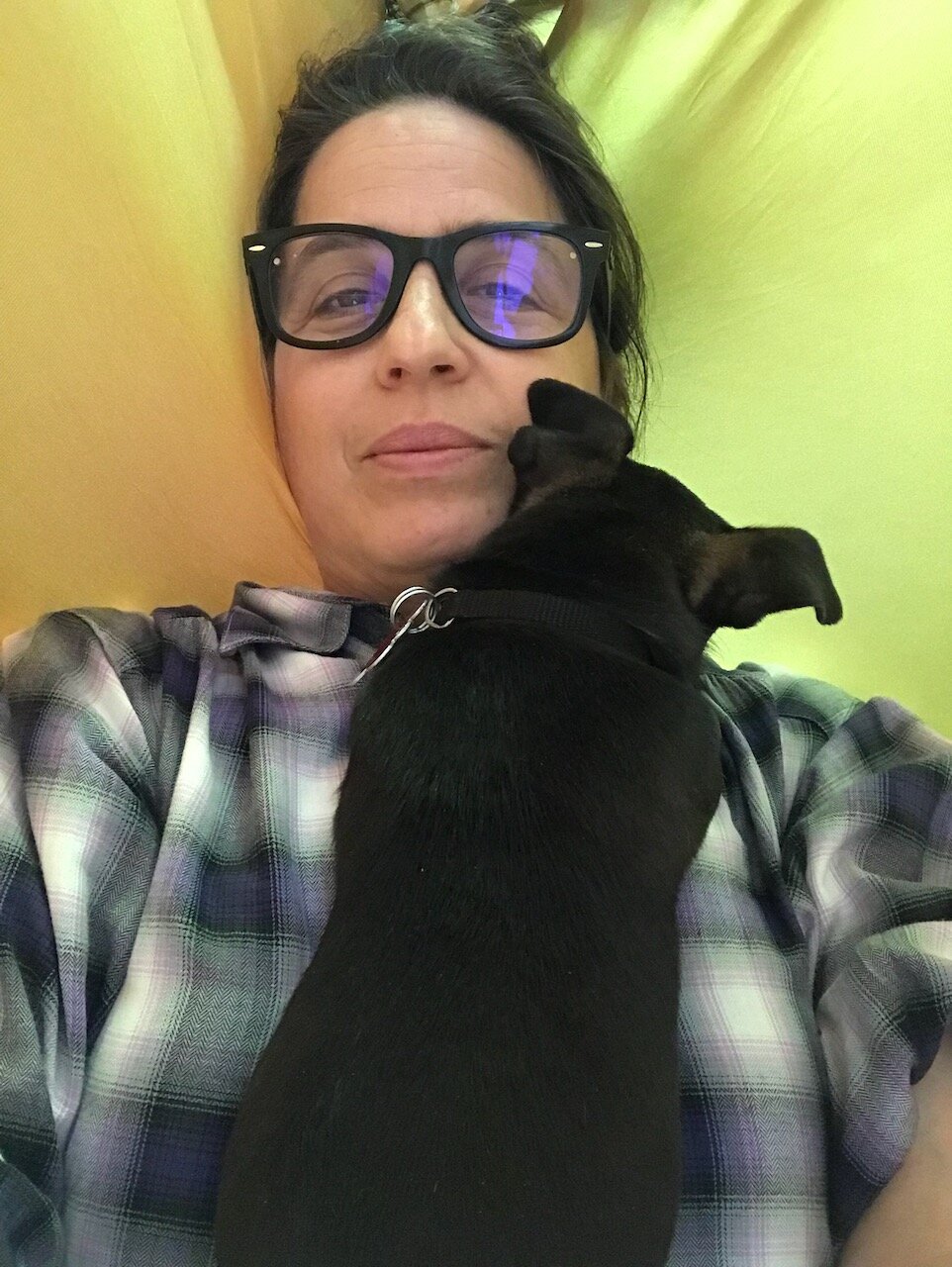a toast for tomorrow

I don’t know how many of the four of you who read this are aware, but one of the things I do with my time is foster dogs. This means that with some regularity, a soft animal comes into my care and I love it up and then, after some interval of time, I see it off into the permanent care of someone else. It means other things too, obviously: that I am really devoted to these new bamboo reusable paper towels I just found, for example. And that I love an enzymatic spray cleaner.
I get a lot of questions about fostering and I welcome them all. I never really get tired of talking about it even though I am a person who gets tired talking to people a lot sooner than I get tired talking to dogs. The questions usually come from people; other than my four-pound chihuahua, who perpetually asks when all of this will be over, both the dogs who live here and the dogs who come and go live pretty much in the moment and this is not the kind of thing they are curious about.
Some people want to know how long I have the dogs for (a couple days or several weeks or even, occasionally, a few months) and some people want to know how I find them homes (I work with several rescues that do their own promotion, and I also post the dogs on my own Instagram page), or if I specialize in a certain kind of dog (I do not).
Hands down the question that most often comes up is, isn’t it hard to let them go?
The simplest answer to that question is as patient a version of this as I can muster: DUH.
“I could never do it,” people usually say. “I could never do what you do. I could never give them up.” Some people say it sort of incredulously, as if I am very different from them in some mysterious way. Some seem to wonder if I have a heart at all. How could a person of normal emotions, I hear them thinking, do this over and over again? She must not connect to them.
Oh, but I do. In much the same way anyone might.
Trade secret that isn’t a secret: it’s hard to let them go. As with most hard things that we reflexively say we can’t imagine, what we mean is that we just don’t like to think about them. The fact that there is a dynamic at play in the world that depends on people being willing to do this kind of work is not pleasant to think too deeply about, because what’s behind it is a worse fact. The fact of a system of beliefs and institutions constructed by people, participated in by people, actively perpetuated by people for profit, that allows vulnerable beings to suffer terribly.
It would be very easy for me to write a little screed here about the state of rescue in America. So easy that I just did, and then fortunately I deleted it.
Because I came to talk about that human thing, the part where we say we can’t imagine instead of allowing ourselves to imagine.
In my quest to combat the powerless feeling of being in a handbasket as the election loomed, I’ve done a lot of phone- and text-banking. I did a training in something called deep canvassing, which is a form of phone-banking where instead of just aggravating people who would rather be eating their dinner undisturbed, you work to connect to what they are worried about and through that connection you’ve established, have profound and transformative conversations that move them from inaction or apathy to action (aka voting).
Many of the people I trained with came back into the zoom room after our shift of calls reporting on compelling and moving exchanges they had just had with bus drivers in Michigan and school teachers in Maine. Full disclosure: I mostly got very old ladies who said “EH? WHAT? CAN YOU CALL MY SON?” and seemed to be holding the phone upside down. But I very much appreciate that this approach is generally quite effective, and I am so grateful to all the humans who researched it and developed it and set up the process, and to those who have applied it tirelessly all over the map. And I am very happy to have the skill set. I can see it has a lot of relevance to life as a human in community with other humans.
Phone-banking is the kind of thing I used to say I could never do. All that talking to people! The high probability of many of them being irritated or argumentative! But my fear that the fabric of human community might unweave irrevocably and the future of the planet slide towards certain destruction got me over the humpty dumpty obstacles there.
For an agnostic human, I am pretty taken with the saying, “there are no atheists in the foxholes.” We are all vulnerable beings that crave safety. Those hungers exist somewhere deeper than the political divisions that make people scream ugly things at each other. And on the spectrum of vulnerability, when we experience less of it, we have a responsibility to push back on the systems doing harm to those suffering from having more.
Spending lots of time with dogs, studying dogs, also has relevance to life in community with humans. I am more tuned to loose bodies vs. tense bodies. How wariness and past trauma show up in the eyes and the limbs (and the tails, though that has less utility across species). Which appetites overwhelm resistance. How care and rest melt tension.
I don’t have a snappy conclusion to this mental meandering. Just please vote. Please, please, please. Oh, and yes—in answer to your question, it is hard to give them up, a lot of work for the heart. It’s just that it’s harder still to know how many are waiting, waiting, waiting for a chance to pass through a home like mine on their way to somewhere else. I do the hard thing not because I’m different from you, but because this is one of the places for me where not doing it feels harder and worse than the costs of doing it.
I do have some bread to offer, because if you think about it you can entice all kinds of creatures with bread: a duck, a fish, a mouse, a dog, a person. Every kind of body likes a little bread.
If you ever see me in a wrecked state, know that hot buttered toast is the best route back for me. It’s just that I can’t eat a lot of the bread that the world provides. I can eat these weird little dudes, though! They are nice as fresh, hot bread and they are heavenly toasted. They happen to also be grainless, gluten-free and a nutritional bonanza. The lemon poppy seed aspect is optional but very delicious; I imagine you can modify these with all kinds of flavors and other seed and nut variations. And if you are looking for another easy, delicious, grainless move, please make my lovely friend Alanna’s crackers.
Please vote.
(and let me know if you are looking for a dog.)
voter rolls
makes 4-6
2 cups almond meal or flour
½ cup tapioca flour
6 tablespoons psyllium husk powder
2 tablespoons whole flax seed
1 tablespoon poppy seeds
2 teaspoons baking powder
½ teaspoon salt
¼ teaspoon cinnamon
Finely grated zest of a lemon
1 tablespoon olive oil, coconut oil or ghee
1 teaspoon cider vinegar
3 teaspoons honey
2/3 cup very hot water
Line a baking sheet with parchment paper and heat the oven to 350°; adjust a rack so it is in the upper third of the oven.
In a medium size bowl, combine all the dry ingredients and the lemon zest. Mix very well, poinking out the little clumps of almond flour and making sure everything is evenly combined.
Drop the oil, vinegar and sweetener into the middle of the bowl, and pour the water over it. Now mix everything up; you should have a soft, not goopy dough. You can add a little more water if not, just test first to see if you can form a nice, smooth ball.
Divide the dough into 4-6 equal portions and make rounded-top, lovely little rolls. Or don’t! Make breadsticks if you like. I bet those would be tasty.
Bake until lightly golden on top, about 25-30 minutes for rolls. Oven temperatures can vary a lot, so check midway that the bottoms of the rolls are not browning too much, as you’ll need the full cooking time to get them baked through to the center. If they are, bump the oven temp down to 325° and move the rack a little higher in the oven.
Cool and split; make little sammies from them or serve with butter. They are soft and tender on day one and make lovely toast (as I may have mentioned) on day two, if they last that long. Store them in the fridge if they linger around more than a day.
And please vote.
